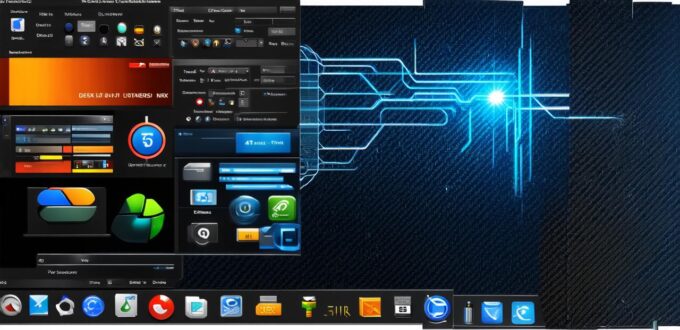Application software is an essential part of modern computing, providing users with a wide range of tools and features to perform various tasks. With so many different types of application software available, it can be difficult for developers to know where to start. In this article, we will explore 20 different kinds of application software and discuss their key features, benefits, and potential use cases.
1. Productivity Software: Productivity software is designed to help users manage tasks, collaborate with others, and streamline their workflows. Examples of productivity software include Microsoft Office, Google Docs, and Trello.
2. Creative Software: Creative software is used by artists, designers, and other creative professionals to create and edit various forms of media, including images, videos, and audio. Examples of creative software include Adobe Photoshop, Illustrator, and Premiere Pro.
3. Multimedia Software: Multimedia software allows users to create, edit, and distribute various types of multimedia content, including videos, music, and games. Examples of multimedia software include Final Cut Pro, Logic Pro, and Unity.
4. Educational Software: Educational software is designed specifically for teaching and learning. It can be used in a variety of settings, from classrooms to online courses. Examples of educational software include Blackboard, Canvas, and Kahoot!
5. Business Software: Business software helps organizations automate processes, manage data, and improve communication with customers and clients. Examples of business software include Salesforce, Hubspot, and QuickBooks.
6. Healthcare Software: Healthcare software is used by healthcare providers to manage patient data, schedule appointments, and communicate with other healthcare professionals. Examples of healthcare software include Epic Systems, Cerner Corporation, and Allscripts.
7. Finance Software: Finance software helps users manage financial transactions, track expenses, and create budgets. Examples of finance software include QuickBooks, TurboTax, and Mint.
8. Human Resources Software: Human resources software is used by companies to manage employee data, automate HR tasks, and improve communication with employees. Examples of HR software include BambooHR, ADP, and Workday.

9. Customer Relationship Management Software: Customer relationship management (CRM) software helps businesses manage customer interactions, track sales, and improve customer service. Examples of CRM software include Salesforce, Hubspot, and Zoho CRM.
10. Project Management Software: Project management software is used by teams to plan, organize, and track project timelines and progress. Examples of project management software include Trello, Asana, and Jira.
11. Time Tracking Software: Time tracking software allows users to record the time they spend on various tasks, which can be useful for billing clients or managing time effectively. Examples of time tracking software include Toggl, Harvest, and Clockify.
12. Web Development Software: Web development software is used by developers to create, edit, and test websites and web applications. Examples of web development software include Visual Studio Code, Sublime Text, and Atom.
13. Mobile Development Software: Mobile development software allows developers to create apps for smartphones and tablets. Examples of mobile development software include Android Studio, Xcode, and Unity.
14. Desktop Application Software: Desktop application software is installed on a user’s computer and can be accessed through an icon or menu on the desktop. Examples of desktop application software include Microsoft Office, Photoshop, and Adobe Acrobat.
15. Cloud Software: Cloud software is hosted online and accessed through the internet. It can be used to store data, run applications, and collaborate with others. Examples of cloud software include Google Drive, Dropbox, and Slack.
16. Gaming Software: Gaming software includes game engines, tools for creating game assets, and software for managing game servers. Examples of gaming software include Unity, Unreal Engine, and Steam.
17. Artificial Intelligence Software: Artificial intelligence (AI) software uses algorithms to automate tasks that typically require human intervention. Examples of AI software include IBM Watson, Microsoft Azure, and Google Cloud.
18. Virtual Reality Software: Virtual reality (VR) software is used to create immersive experiences for users. Examples of VR software include Unity, Unreal Engine, and Oculus.
19. Augmented Reality Software: Augmented reality (AR) software overlays digital content onto the real world. Examples of AR software include ARKit, ARCore, and Vuforia.
20. Data Analysis Software: Data analysis software is used to collect, organize, and analyze large amounts of data. Examples of data analysis software include R, Python, and Tableau.
